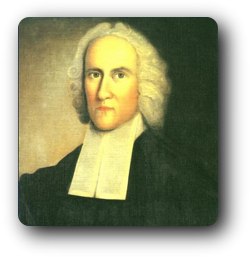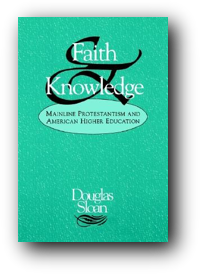
What is the place of theology in the secular academy? I don’t have hard data for this, but I think almost no secular colleges and universities still have “theology” departments. Rather, they have “religious studies” departments, of which theology may be a part. Even those universities that have well-respected schools of theology – Harvard, Yale, Duke – keep those schools in a separate line, and offer religious studies courses to undergraduates. We are all aware that religious beliefs have to be carefully articulated and nuanced to be taken seriously in the academy (that is, as something integral to scholarship and teaching, and not just a part of “student life”). Indeed, even the idea of religious ideas informing scholarship often has to be defended. It was not for no reason that Marsden titled his book The Outrageous Idea of Christian Scholarship.
Nonetheless, I was still taken aback by K. L. Noll‘s suggestion in the Chronicle Review that it is actually unethical for theologians to claim to offer knowledge through their theological teaching and scholarship. Not “true knowledge,” mind you, but knowledge of any kind. Noll further argues that theologians have failed in their ethical responsibilities in the academy and in the wider world. Ethical theologians, Noll writes, will explicitly acknowledge that all theological claims are rooted in fiction.
Here’s Noll’s basic argument, in his own words.
In my view, the purpose of academe is to advance knowledge, or an understanding of how things are in the real world. I do not accept the trendy postmodern notion that we are incapable of achieving that kind of knowledge. Our colleagues in the natural sciences have an advantage over us, in that they are able to wrestle with reality using research tools unavailable to the humanities or social sciences. Nevertheless, when unencumbered by overtly ideological agendas, even those of us in the humanities and social sciences can advance knowledge.
OK, so far, so good. I think I could live with that for the time being, though his understanding of the humanities and social sciences doesn’t sound quite right. He goes on to explain how his speciality, religious studies, fits into that schema.
Religious study attempts to advance knowledge by advancing our understanding about why and how humans are religious, what religion actually does, and how religion has evolved historically.
The word “evolved” here bothers me, not because of any Darwinian quibbles, but because religious innovations can usually be traced to specific teachers, leaders, or communities. I know that history can’t be boiled down to a “great man” theory, but neither can we pretend that Buddha, Jesus, Mohammed, Luther, Nanek Dev, etc., never existed and had no personal impact, unless, of course, you believe that human beings are mere products of their culture and chemistry. But I digress. Noll continues:
Theology also views itself as an academic discipline, but it does not attempt to advance knowledge. Rather, theologians practice and defend religion. Theology is a set of words about a god; therefore, while theology is one of many objects of investigation for a religion researcher, it is the substance of the scholarship produced by a theologian.
To Noll, the religious studies researcher occupies a more honored, more secure place within the academy than the theologian. Indeed, he writes that “the religion researcher is related to the theologian as the biologist is related to the frog in her lab.” Theologians are objects of study, not producers of knowledge, and they shouldn’t pretend that their word games about revelation, ritual, and “god” should be taken seriously as authentic scholarship, either within the academy or in the outside world. Here’s one of Noll’s conclusions:
[Theologians must acknowledge that t]he god of the Bible is the sum total of the words in the text and has no independent existence. It would be reasonable to begin every theological discussion with the disclaimer “the god described in this sacred text is fictional, and any resemblance to an actual god is purely coincidental.” This is not an outsider’s dismissive opinion, but the reality, and theologians have an ethical obligation to teach that truth even if they also want to believe and teach, as is their right, that a god exists.

Noll’s position is nothing new. He puts forth basically the same “faith-reason” or “fact-value” division that has dominated the academy since the late 19th century. Douglas Sloan, in his excellent and under-read book Faith and Knowledge, argues that it was Protestant scholars’ failure to respond adequately to the fact-value divide that led to the current marginalization of religion in the academy today. Faith and Knowledge traces the remarkable rise and fall of mainline Protestant ministry within the academy – at one point during the 1950’s and ’60s, more than 100,000 Protestant faculty were involved in Christian fellowships at secular universities, either through on-campus communities or a national network of publishing and conferencing. By the mid-1970s, the entire movement had collapsed.
Sloan identifies three main responses to the fact-value divide: anti-modernism, materialistic naturalism, or what he calls the “two-realm theory of truth,” which he argues was adopted by mainline theologians like Reinhold Niebuhr and Paul Tillich:
This is the view that there are truths of knowledge as these are given predominantly by science and discursive, empirical reason. On the other side are the truths of faith, religious experience, morality, meaning, and value. The latter are seen as grounded not in knowledge but variously in feeling, ethical action, communal convention, folk tradition, or unfathomable mystical experience.
If you’ve ever wondered how theology fell from being the “queen of sciences” at the center of the university experiment to its current place as one discipline among many, Sloan’s book is essential reading. You can get a free preview of Faith & Knowledge from Google Books. The problem with these “two realms,” as Sloan traces in his book, is that the “faith and religion” realm sooner or later gets eaten up by the “science and empiricism” realm and is no longer seen as knowledge, but only value, feeling, or personal preference – as seen in someone like K. L. Noll, who says, essentially, that theologians ought to mind their place. Eventually, religion is no longer even “real,” but, as Noll himself puts it, “a sincere interpretation of genuine experiences that neurobiologists can help us to understand.” Nothing is true except what empirical science can prove is true. Which is why Noll, in my first quote above, expresses envy of the natural sciences.
I won’t go into the rest of Noll’s argument or critique his other points – the comments at the Chronicle do a good job of that, so I hope you’re a subscriber and can see them. One of the commenters hits the nail on the head, I think, by targeting Noll’s concept of “knowledge” as problematic.
Bonus Book
This fall, Eerdmans will publish John Sommerville’s newest book, Religious Ideas for Secular Universities. John gave us a preview of his argument at our Midwest Faculty Conference this summer, and I think it’s safe to say that you will be very interested in his ideas.
The former Associate Director for the Emerging Scholars Network, Micheal lives in Cincinnati with his wife and three children and works as a web manager for a national storage and organization company. He writes about work, vocation, and finding meaning in what you do at No Small Actors.

Brilliant come-back, Micheal, and I agree with you whole-heartedly. I was not aware of Sloan’s book and now I want to read it.